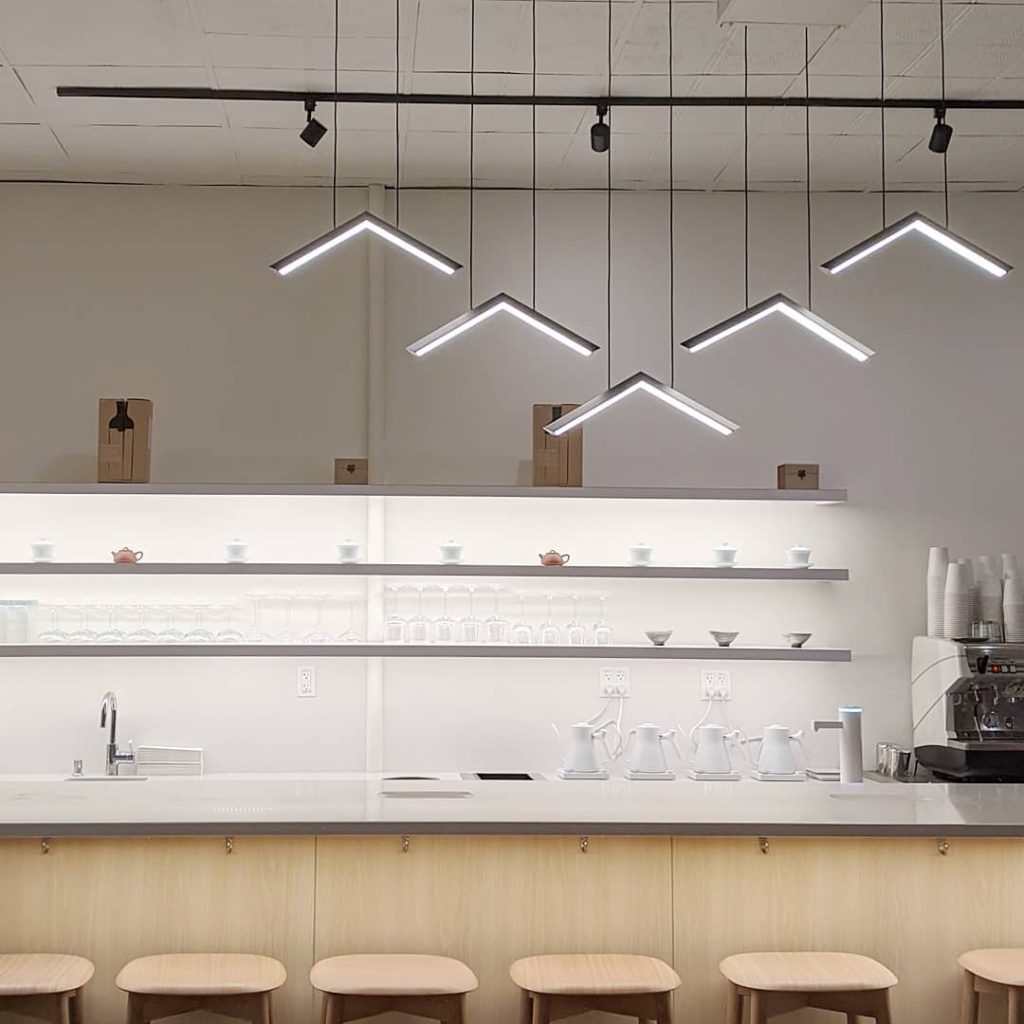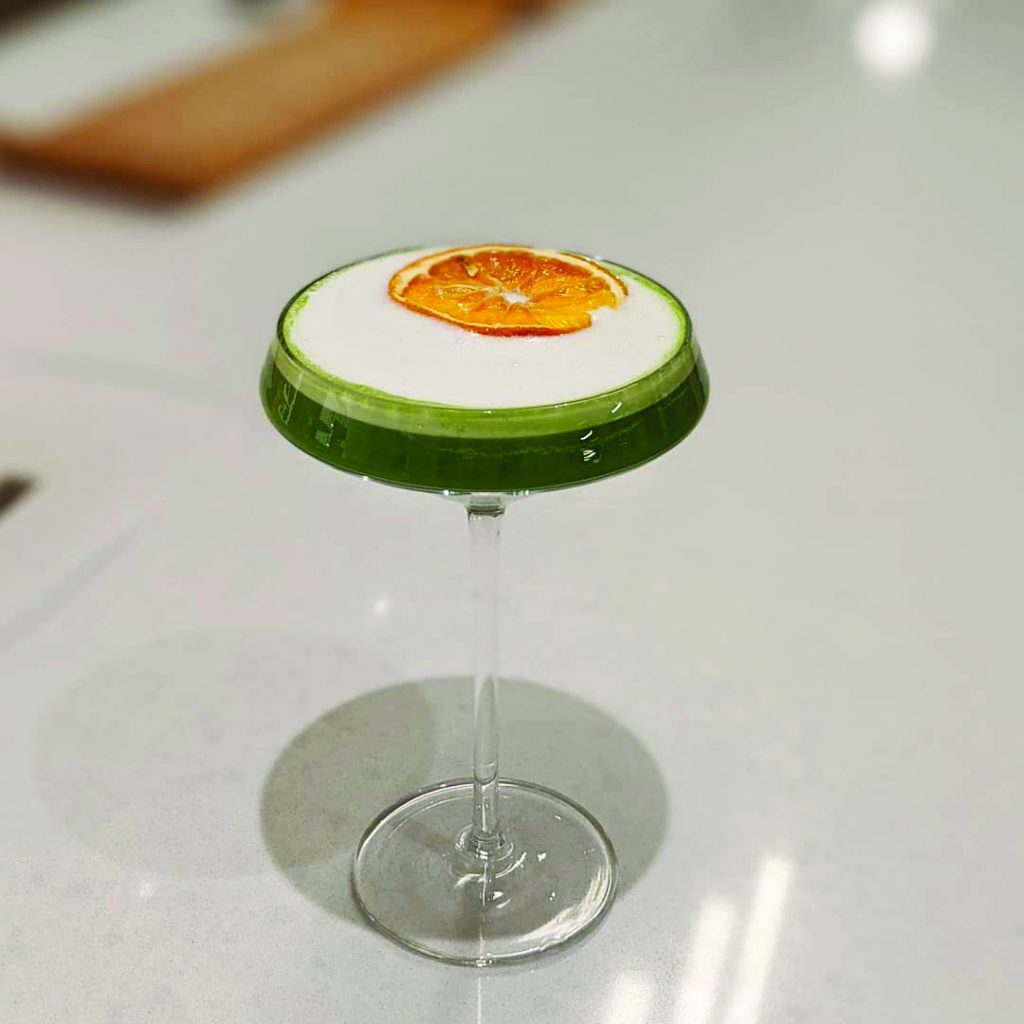“I want anyone to stumble upon Ceremony and say, ‘Oh my God, what’s this?’” says Michelle Cheng, the owner of Ceremony Café, which opened in early December in PVD. Cheng describes her new business as a “tea house reimagined,” one that blends the ancient traditions of Chinese and Japanese tea ceremonies in a modernized setting, making it accessible to everyone — a concept that is trending across the United States with a new artisanal tea movement.

“I don’t want this café to be a laptop office, like other coffee shops,” Cheng says; rather she hopes this space will provide a unique experience in which customers can be fully engaged. “We’ll have WiFi, but no outlets. We want you to watch us make tea, be present with your friends or even read a book — just reconnect with the world around you.”
This modified tea ceremony — “our version,” as Cheng says — combines what she’s seen in Japan, Taiwan and China, but with tweaks to make it her own. “In Japan, learning to perform a tea ceremony requires five to seven years of training. There’s no way I’d do it justice, and I’m not trying to replicate it here. In China [where I grew up], tea ceremonies are something you can do every day, more of a DIY.” The key, Cheng says, is the mindfulness and intentionality behind drinking tea. She hopes these ceremonies will encourage customers to continue the practice, even recreating them at home on their own.

Tea ceremonies, like the teas themselves, come in different types and flavors. There is a selection of tea ceremonies guests can choose from that will last between 30 and 60 minutes, and can be experienced individually or in groups of up to four. Unlike high tea (or afternoon tea in the UK), the Eastern tea tradition is not designed to bridge the gap between lunch and dinner by serving a selection of finger sandwiches and scones; its intention is to appreciate the tea itself, much like attending a wine tasting. With that said, Ceremony will partner with another Hope & Main company, SinoBox, an artisan Chinese pastry maker, to provide hand-crafted sweet specialties, such as black tea butter cookies and pineapple cakes, made with matcha and whole fruit for the filling.
In addition to tea ceremonies and the more conventional hot and cold teas sold during the day, Ceremony also offers an evening menu specializing in zero-proof tea-infused cocktails, a trend that is on the rise with more people identifying as sober curious. “I was the person who wasn’t really interested in drinking alcohol, but I always got treated like a kid when ordering ‘mocktails.’ The younger generation is so much more aware. And truth be told, what kid likes the taste of alcohol? I wanted to create an environment where you can dress up, go out with friends, feel social and enjoy the experience of drinking without needing alcohol to have a good time.”
Cheng is known for her forward-thinking business savvy, a skill she acquired from working in the fashion industry in New York City. “Before I launched Ceremony, I asked myself, what kind of tea culture exists now? What is missing? What is it that people want?”
Cheng wanted to begin with a storefront right away, but she knew she needed to understand the community and the clientele. So she first founded Leafy Green Tea as a pop-up business out of Hope & Main food incubator in Warren, introducing the community to ethically sourced, high-end loose leaf teas from a single origin — a type of product no one else in the state was offering. “In recent years we’ve seen an emphasis on where coffee comes from, where meat comes from — what about tea?” Tea is the second most consumed drink in the world, after water, so it’s a conversation that’s worth having.

Similar to wine, tea is an agriculture item, so it should vary in taste based on fluctuations in the weather and the soil. Was it a dry year? A humid year? The problem with a teabag culture is that Americans have become accustomed to expecting the exact same flavor from a known bag of tea, which has been blended and altered to reproduce the same flavor. “[Big companies’] quality control is different from ours,” Cheng says, who focuses on small batch farmers and visits each one to observe the conditions of the workers, the tea harvests, the production systems. She communicates directly with the farmers in China and Taiwan. “If you’re here in the States doing business with ‘Chinese farmers’ and are having your questions answered in English, you’re not talking to the farmers themselves,” she observes. While visiting her Japanese tea sources this year, she hired a translator to ask the questions she wasn’t able to herself. “Japan is very different in how they export compared to China and Taiwan,” she says. “Their standards of cleanliness in the production areas for matcha are hazmat-suit level of clean.”
Single origin, unblended, rare types of tea: the delicate and subtle differences that make each tea special. “Tea is the whisky of hot drinks,” Cheng says. “I’m most excited to be behind the bar and have someone who isn’t a tea drinker — or someone who doesn’t know what they want — trust me enough to let me help them decide on a tea. I want them to taste the difference.”
Although Cheng is the first to introduce this concept to this area of New England, she doesn’t expect to be the last. She was also the first in RI to develop Nitro Tea, cold brew tea infused with nitrogen, that, just like coffee and beer versions, gives it a unique texture and body, as well as the Matcha Affogato, a twist on the Italian dessert, in which she pours hot matcha tea over vanilla ice cream. Soon after, she saw others copying her idea. “At first it bothered me, but one of my mentors told me, ‘You’re a content creator. People are always going to follow you. You should be worried when no one’s imitating you.’ I realized I need to stop looking behind me and continue looking ahead.”
231 Thayer St. @ceremonypvd